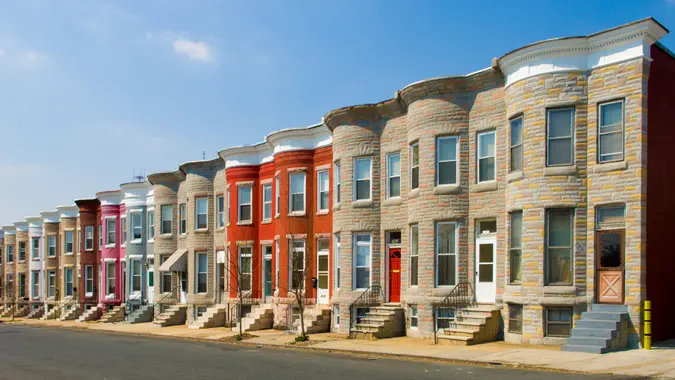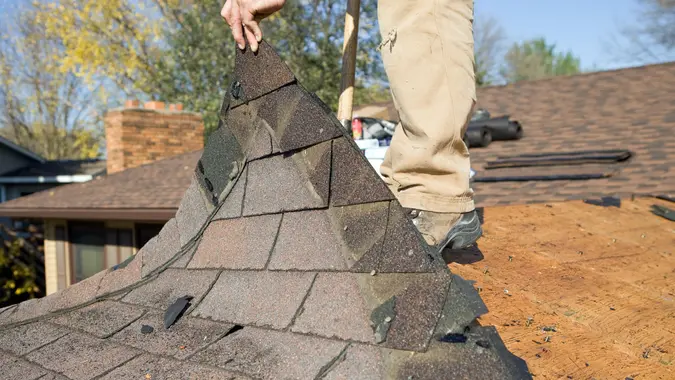Who Owns the House in a Mortgage?

Commitment to Our Readers
GOBankingRates' editorial team is committed to bringing you unbiased reviews and information. We use data-driven methodologies to evaluate financial products and services - our reviews and ratings are not influenced by advertisers. You can read more about our editorial guidelines and our products and services review methodology.

20 Years
Helping You Live Richer

Reviewed
by Experts

Trusted by
Millions of Readers
When someone purchases a house, they may receive congratulations from family and friends as a “new homeowner.” Some new buyers may counter with the age-old joke, “Well, the bank owns it — but I live here and pay for it!”
Of course, you’re not a tenant with a landlord, so you have certain rights within your home… and that includes the right to be proud of your purchase! You also have the right to make changes to the interior of the home and the property, in accordance with local building codes.
But you might be surprised to learn that even if the property was purchased via a mortgage arrangement, you still own the home. Your name is on the title as the homeowner. The bank or mortgage company owns an interest in the property and the mortgage note itself — but the lender does not own your house.
Your home is considered collateral for the mortgage loan. As long as you pay your home loan in accordance with the terms, you are the legal owner of the property. Even if your mortgage goes into arrears, the foreclosure process can take time, and you will have many opportunities to negotiate an agreement or get up to date on your payments. Until the mortgage lender successfully forecloses, you still own the home.
So, next time someone congratulates you on your new home purchase, simply smile, say “thank you,” and perhaps invite them to your housewarming party — after all, it’s your house!
More From GOBankingRates
- How Much You Should Have in Your Savings Account at Every Stage of Life
- Find Out Which Banks Are the Top 100 Banks Leading the US in 2022
- How Has COVID-19 Impacted The 2022 Tax Season?
- 35 Useless Expenses You Need To Slash From Your Budget Now
 Written by
Written by  Edited by
Edited by 

























